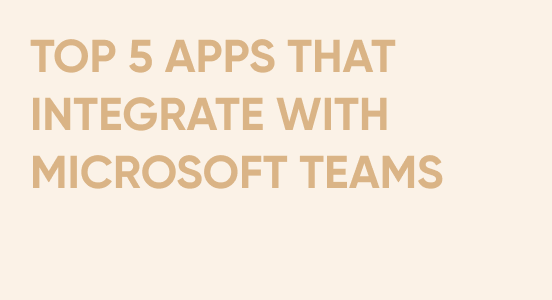
What determines the quality of the working environment?
- Uncategorized
- 6 min read
Personal Opinion by Kate from Approveit
We often call an unhealthy working environment “toxic”. This word is very descriptive, you can almost feel it when you hear someone describing their relationship or environment in this way. It is easy to visualize as a cloud of poisonous gas that you have to enter and stay in every day. It won’t instantly kill you, but is sure to cause you accumulated damage, sometimes irreparable. Depression, burnout, productivity drop, and guilt are not rare among people who are forced to work in mentally toxic environments.
This research was studying the connection between work environment and general job satisfaction.

“Working environment has a positive impact on the job satisfaction of employees. Bad working conditions restrict employees to portray their capabilities and attain full potential, so it is imperative that the businesses realize the importance of a good working environment”
A quote from the research conclusion
What determines the quality of your working environment?
It’s safe to say that the working environment is vital when it comes to health, productivity, and a positive mindset of your team. So, what do we do to keep it healthy?
Let’s start by saying that most of the things we’re going to be talking about here fall under the umbrella of good management. Think about who you would rather work for: someone who is friendly, open, and easy to ask for a piece of advice, or someone whose name you’re uncomfortable saying out loud?
But not only the personality of a manager is that counts here. Healthy work environment is like a puzzle, and its core pieces can be influenced by the management of the company.
1. Safety and security
You can be the best boss in the universe but if your people have to work in life-threatening conditions, that doesn’t matter much. After all, safety needs are one of the three most basic human needs. Providing safe work conditions, all necessary means of protection, and having clear security and safety protocols is essential. Even if it’s just the office, there are things to consider. Is the elevator safe to use? Is air conditioning working properly? Are all the personal data of your employees secure? Personal information leaks violate one of the most essential needs of your team and can not be treated lightly.
2. Reasonable demands
Do not ask of people more than they can give. If your demands destroy people’s life-work balance you will be the one they blame for their marital troubles, psychological discomfort, and health issues. How long do you think they will keep working for you?
A request coming from a boss is still most likely to be taken as an order but if you put it nicely there’s a way higher chance of getting quality work results. If you want your team to walk an extra mile for you, try changing “demand” to “ask”.
Keep in mind that everything your people have to do is determined by their contract. Everything extra is and should be treated as voluntary! Just keep track of how different employees react to your requests and reward those who listen to you and go that extra mile to be most useful to your company. That brings us to our next point.
3. Reward your team
“Reward” does not equal “motivation”. Positive motivation vs negative motivation is a popular debate subject. Studies show that both can be effective. However, there are traps. The type of motivation you apply has to be tuned to the individual. “Not being fired” can be taken as a reward by one when for another it is plain blackmail.
A reward is simply something an individual wants and gets for a job well done.
Keep in mind, rewards can be different, not only monetary. Acknowledgment, praise, extra credit, flexible hours, freedom to be creative, trust – all of these qualify as rewards. To avoid guessing which one to apply in every individual case just ask your teammate about their preference! They will happily tell you what is the best way to reward them.
4. Respect boundaries
Keep your relationships with your collective professional first, and friendly second. Prying about personal lives, dropping equivocal comments, and sharing too much personal information is not welcome in a healthy workspace. Everyone has their own definition of what’s appropriate and what is not. So, having general ethical guidelines would help. Keeping a reasonable distance also helps in reminding people of their responsibilities: the atmosphere being too relaxed and friendly can result in you being unable to squeeze literally any work progress out of the team members with a certain personality type.
5. Remember that no one is perfect
I bet you weren’t born a boss. You had to work your way up, learn, and make mistakes. Your employees are doing exactly the same thing. It’s an important part of the learning curve: if you never do anything wrong, you’re probably not doing anything at all. Encourage your people to learn from their failures instead of punishing them for slipping. The way people correct their mistakes is what counts. Do they approach it with moaning and blaming others or with humility and determination to find the best fix? Notice patterns. If someone has done something wrong, made it right, learned from it, and did not repeat it again, that someone is capable of reflecting and learning and is a valuable asset to your company.
6. Organize team-building activities
This is the type of thing that a lot of us do not take very seriously. However, it’s extremely valuable. Spending eight (or more) hours with the same people you haven’t chosen every single day, depending on them when you don’t want to be can become a burden. Let your employees see that they can not only work, but also have fun together! A corporate picnic, a Christmas party, or a game night at work can become a great bonding experience for your team members, give them something nice to remember about each other, something to laugh at together. By creating an atmosphere of trust you make your team happier and your results better.
It is entirely up to you to make your company the best place for talented and prospective people. I believe we choose who we are, and you can choose to be the person everyone wants to work for:)
Enjoyed the reading?
Subscribe to our fresh artiles, product updates and news

